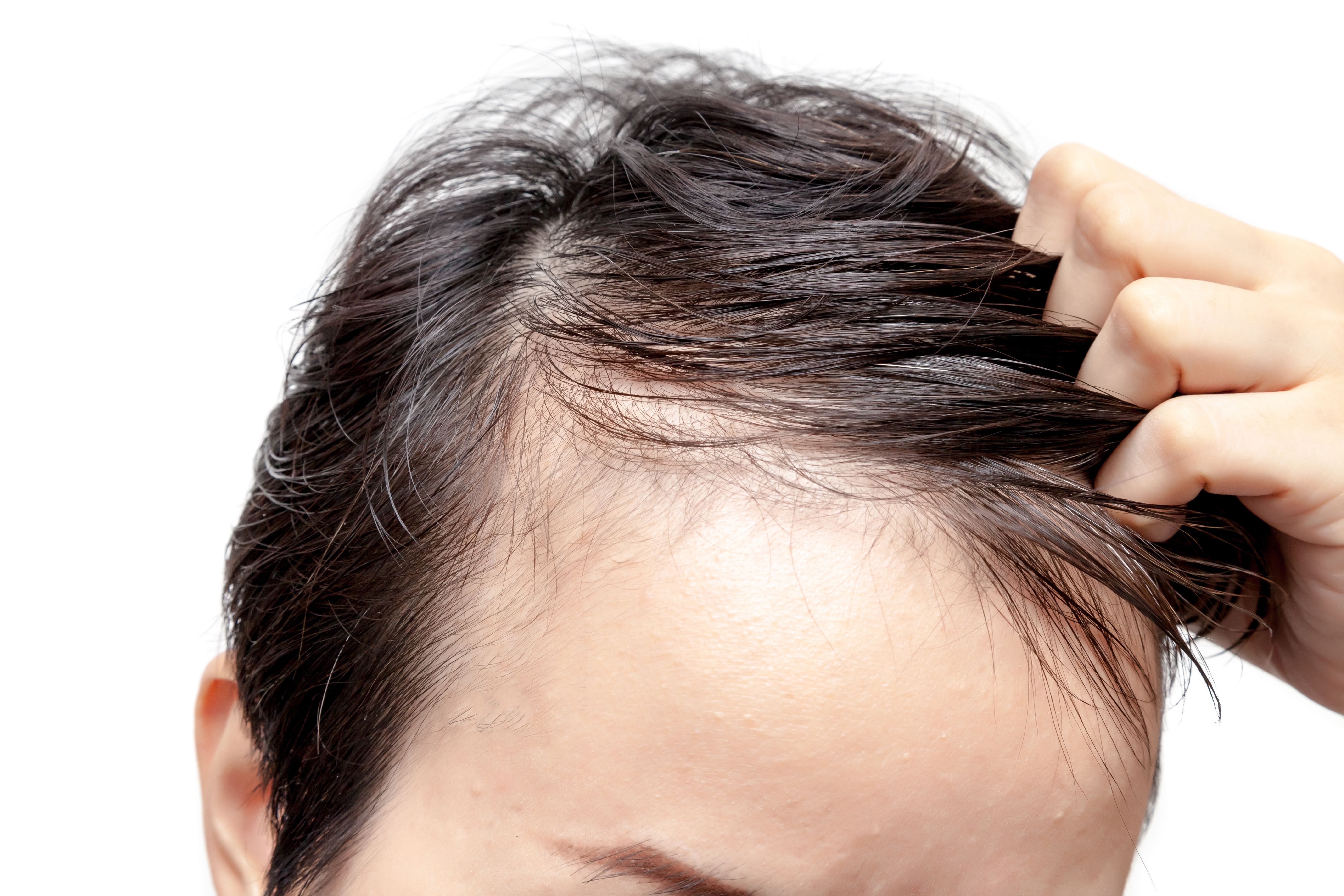Article
Thyroid Replacement Therapy May Not Offer Long-Term Protective Benefit in Hypothyroidism
Author(s):
Normal thyroid stimulating hormone levels don't necessarily stave off all-cause mortality for hypothyroid patients, but adverse outcomes may intensify if levels fall below or above the norm.
Normal thyroid stimulating hormone levels don't necessarily stave off all-cause mortality for hypothyroid patients, but adverse outcomes may intensify if levels fall below or above the norm. Hair loss, as shown here, is a symptom of hypothyroidism. (©Kaarle,AdobeStock)

Researchers reporting in BMJ this month find no clinically meaningful difference in all-cause mortality and other long-term negative health outcomes for hypothyroid patients who achieve normal range levels of the thyroid stimulating hormone. However, adverse health outcomes may occur when concentrations fall outside of the normal range.
Thyroid stimulating hormone levels outside of the norm can be associated with long term adverse health outcomes, particularly cardiovascular diseases, mortality and fractures. In this retrospective study, researchers investigated whether maintaining thyroid stimulating hormones at different concentrations in hypothyroid patients was associated with long term adverse outcomes.
Of 162,369 patients, researchers found no clinically meaningful difference in the pattern of long term health outcomes, including all cause mortality, heart failure, ischemic heart disease, stroke/transient ischemic attack, atrial fibrillation, all fractures, and fragility fractures, when thyroid stimulating hormone concentrations were within normal limits of between 0.4-4 mIU/L. But mortality rates rose among patients who were below <0.1 mIU/L, but also for concentrations above 4 mIU/L. Meanwhile, risk of ischemic heart disease, heart failure, and fragility fractures was increased at high thyroid stimulating hormone concentrations (greater than 10 mIU/L), and mortality was increased in both the lowest and highest thyroid stimulating hormone categories (less than 0.1 and greater than 4 mIU/L).
While current treatment guidelines in the U.S. and Europe recommend that replacement therapy should be aimed at resolving symptoms and achieving normalization of thyroid stimulating hormone, no specific optimal target for thyroid stimulating hormone exists in the context of thyroid hormone replacement.
“This study provides strong support for the current recommendations on the clinical management of hypothyroid patients and validates with hard evidence the latest American Thyroid Association and British Thyroid Association guidelines,” wrote the authors, led by Krishnarajah Nirantharakumar, M.D., of the University of Birmingham in the U.K.
REFERENCE
Thayakaran Rasiah, Adderley Nicola J, Sainsbury, et al. “Thyroid replacement therapy, thyroid stimulating hormone concentrations, and long term health outcomes in patients with hypothyroidism: longitudinal study.” BMJ. September 3, 2019. doi: https://doi.org/10.1136/bmj.l4892

FDA Approves Crinecerfont for Congenital Adrenal Hyperplasia



